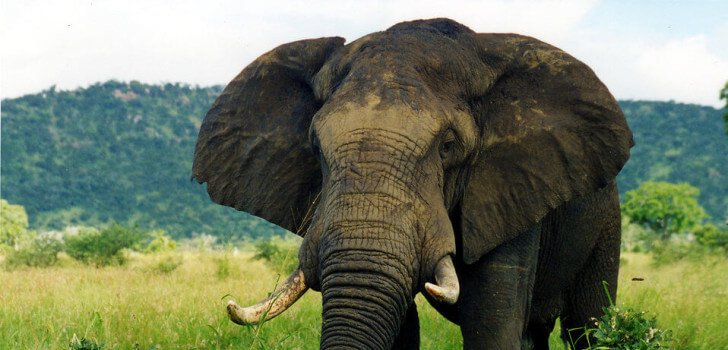Conservationists in Africa are putting pressure on Chinese President Xi Jinping to enact a complete and total ban on ivory trade in China. The African elephant population is being critically weakened by the Chinese demand for ivory.
On Friday, the Chinese President will meet with leaders from roughly 50 African countries in Johannesburg, South Africa. The meeting is part of the Forum on China-Africa Cooperation.
While most of the discussion will be focused on industrialization, development, infrastructure and agriculture, the elephant issue will undoubtedly be mentioned. More than 75% of all ivory that is poached in Africa is traded in China.
African Wildlife Foundation representative Philip Muruthi said, “You cannot discuss development without talking about the natural resources and primarily wildlife. Africa and China hold the keys to the future of elephants.”
Meanwhile, the World Wildlife Foundation has demanded that the meeting produce clear and concise goals in its final declaration. The foundation also wants an action plan to institute the sustainable usage and trade of natural resources.
Every year, between 20,000 and 40,000 elephants in Africa are killed. This is mainly the result of high demand for ivory in Asia, where the price of ivory has been on the rise. Demand for ivory in China has been increasing because of the country’s growing middle class.
Conservation group Save the Elephants said, “In the four years up to 2014, the wholesale price of raw ivory in China tripled, reaching a per kilo dollar price of $2,100.”
The founder of Save the Elephants Iain Douglas-Hamilton warned, “Without China’s leadership in ending demand for ivory, Africa’s elephants could disappear from the wild within a generation.”
Director of China’s branch of the global NGO Traffic Fei Zhou added, “This hobby of ivory craving should be changed because it drives the African elephants to the brink of extinction.”
In the past, China has funded projects designed to protect African elephants. Last year, the country donated $10 million to fund vehicles for park rangers and other protection measures. China has also introduced penalties for ivory traffickers. The average prison sentence for trafficking ivory in China is 15 years.
Still, the country hasn’t taken the ultimate step of fully forbidding the sale of ivory. Most of the illegal ivory trade in China has been covered up by the fact that some ivory trade is still legal.
China used to be a major contributor to the practice of poaching tigers. But in 1993, the Chinese government banned the sale of tiger bones, and the demand quickly declined. It’s very possible that a similar action could be taken against ivory.
Earlier this year in September, President Xi said that he would take significant steps to stop the domestic trade of ivory. Conservationists said that the move was historic. Now it’s time for President Xi to follow through with his promises.
There are currently only about 470,000 elephants left in Africa. At the start of the 20th century, there were more than 20 million.
Stay Connected